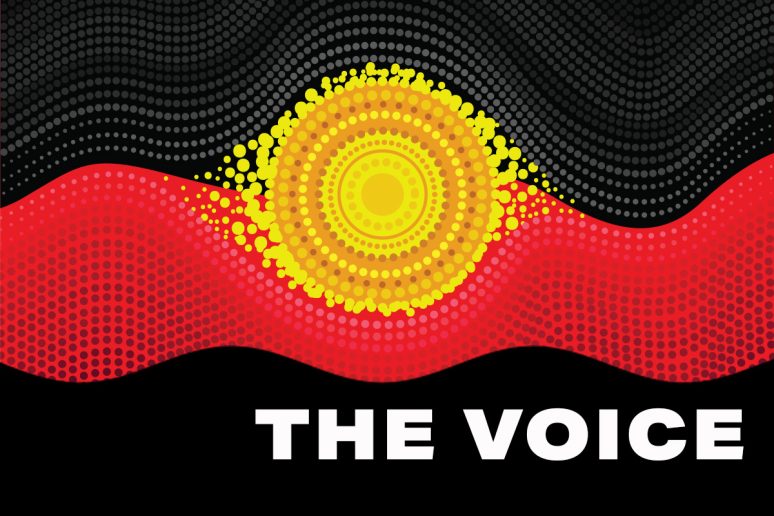By Peter Aldenhoven, CEO Willum Warrain Gathering Place
THE 1967 referendum produced the highest ever Yes vote in support of including Aboriginal and Torres Strait Islander peoples on the census for the first time. Up until then, the Australian government had a clearer idea of how many sheep were in the country than Aboriginal people.
It was a heady achievement. Australian people voted to right a great wrong; they voted for fairness and justice for First Australians. The best version of ourselves as a nation rose to the fore.
Together, we can do this again in 2023. We can make history.
I am a proud Nughi man hailing from Moorgumpin (Moreton Island) off the coast of Brisbane. My ancestral links are to Quandamooka Country.
I am also the CE0 of Willum Warrain Aboriginal Gathering Place in Hastings. Willum Warrain is a place where local Aboriginal people gather together for cultural programs and events.
We are a large Aboriginal community organisation with 590 Aboriginal members and more than 2500 through kin. We have a similar number of associate, non-Indigenous members.
Every Friday is community drop-in day when we are open to everyone. Most of our events throughout the year are also open to the broader public including our upcoming
Willum Warrain Mornington Peninsula Reconciliation Walk on Sunday 4 June, starting at 11am at Pelican Park on the Hastings foreshore. We are anticipating a very large crowd walking in support of Voice. It will be a joyous and celebratory occasion.
The other vital aspect of the reconciliation work we do is our cultural immersion tours.
Last year, 6600 people visited Willum Warrain to learn about the diversity of our ancient cultures in a contemporary Aboriginal setting. We are on track for 10,000 visitors in 2023.
What this level of engagement reveals is a deep yearning for greater connection with, and understanding of, First Nations’ peoples and our complex histories. Willum Warrain is therefore buoyed by the interest in Voice to date from all our friends, allies and supporters. We really appreciate it.
In a spirit of reconciliation, your local Aboriginal community invites you to talk up Voice, yarn to your friends, families and work colleagues as we build momentum leading up to the referendum. We understand that there is a lot of educative work to be done and we really need your help to achieve a positive outcome.
For example, it is not widely appreciated that the 2023 referendum has two elements to it. One is to acknowledge Aboriginal and Torres Strait Islander people in the constitution in a positive, foundational way. This is very important given we are the oldest living continuous cultures on earth.
It is true however to say that this component of the referendum has been overshadowed by the Voice debate.
Put simply, Voice is a mechanism for First Nations’ Peoples to have a say on government policies that affect our lives.
It is a straightforward, reasonable ask that most fair-minded Australians can readily accept.
It will be a platform for First Nations’ communities across the country to share our policy ideas and solutions. We know the challenges, hopes and possibilities sitting within our communities. We definitely know our mobs best.
In part, the background to the 2023 referendum was the 2017 Uluru Statement from the Heart, a generous invitation by 250 delegates from across the country inviting our nation to recognise our Indigenous history through a process of Voice, treaty and truth-telling. After all, Australia is the only former British colony without a treaty with its Indigenous peoples.
But this is not just a recent request. Indigenous Australians have been asking to be heard for decades.
In 1937, one of our greatest Aboriginal leaders, William Cooper, attempted to petition King George V for an Aboriginal Voice to Parliament. Sound familiar?
Polls consistently show that 80 per cent of Aboriginal people want Voice?
Since the start of colonisation, for 230 years, government policies have disastrously impacted all aspects of our lives; we have been removed from our lands, placed on missions, had our children taken; the army has been sent into remote communities.
The “torment of our powerlessness” is the striking phrase in the Uluru Statement from the Heart that captures how we feel in the face of such structural inequity.
Voice is a simple ask of the Australian people.
Listening to First Nations’ Peoples will help government make better policy for First Nations’ Peoples.
Better policies will deliver better outcomes for First Nations’ Peoples.
What’s good for First Nations’ Peoples is good for all Australians.
I really hope that come this year’s referendum, that mainstream Australia will once again vote Yes like they did so resoundingly in 1967. Our shared journey of reconciliation depends on it.




